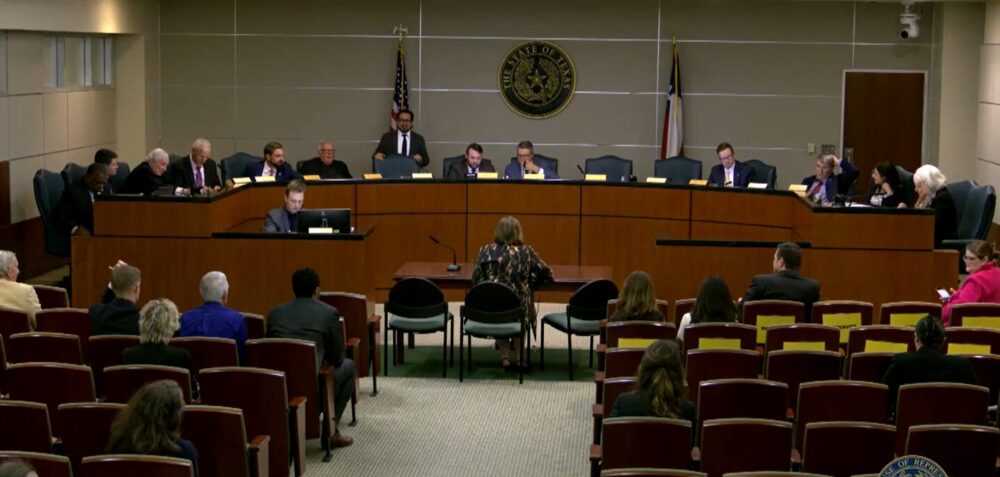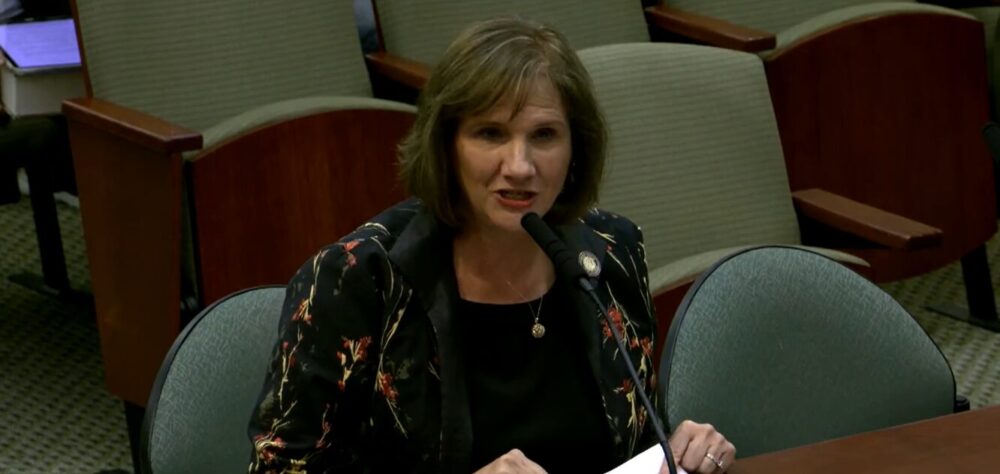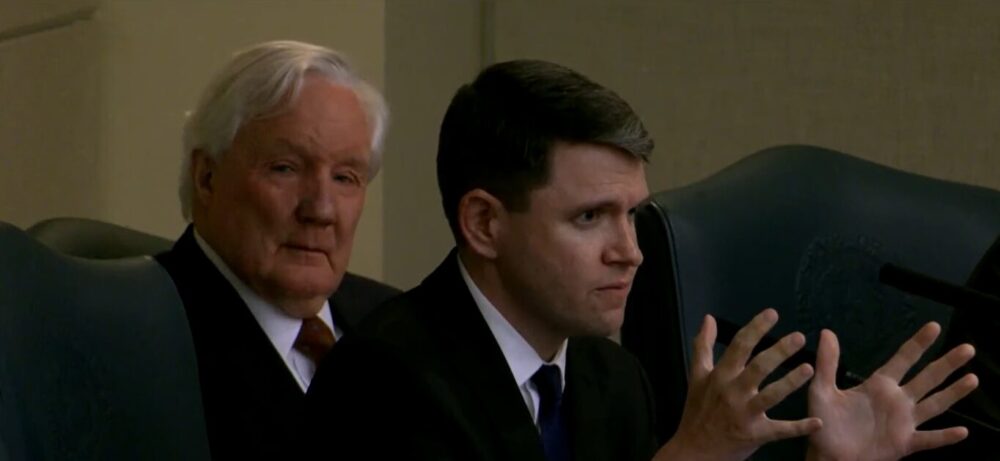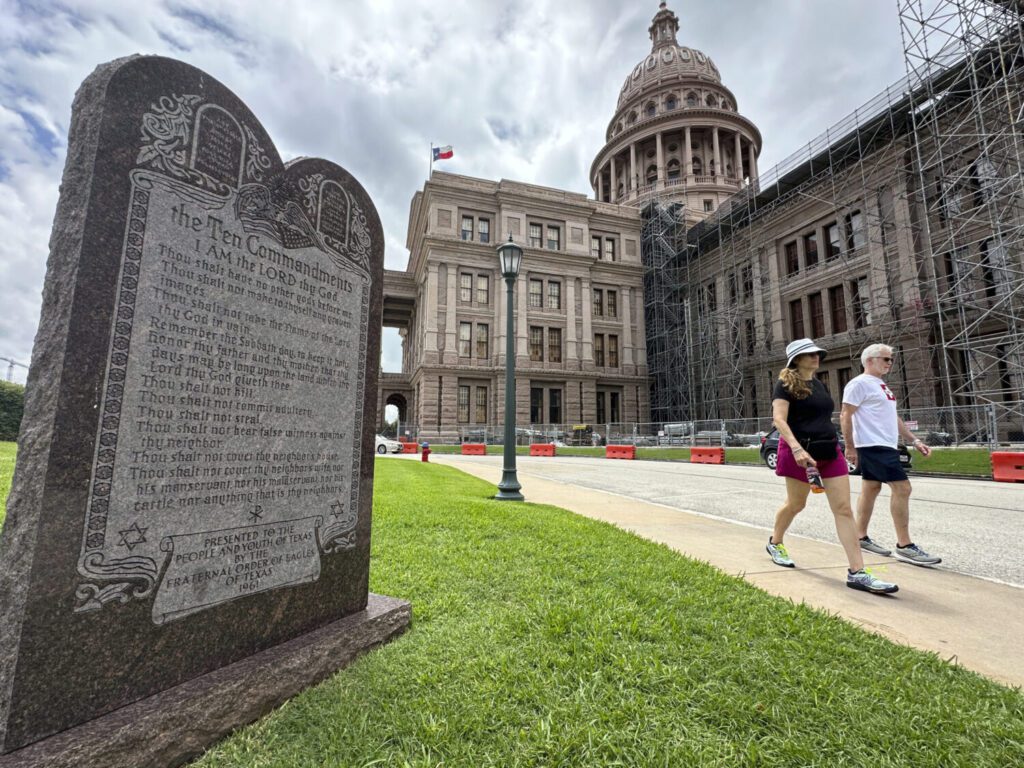
Screenshot/Texas House
A proposed law requiring all public-school classrooms in Texas to display the Ten Commandments has advanced in the state’s House of Representatives.
The House Committee on Public Education passed the controversial Senate bill without amendment on Thursday, following a pre-dawn hearing earlier this week. The full House could vote on the bill as early as next week.
Senate Bill 10 would require all public-school classrooms in the state to display the Ten Commandments, using the same translation as on the monument outside the Texas Capitol in Austin.
State Rep. Candy Noble (R-Lucas), who is carrying the bill in the House, argued the Ten Commandments are a foundational document in U.S. history and critical to moral education.
“The Ten Commandments were a prominent part of American education for almost three centuries before the 1971 Supreme Court decision in Lemon v. Kurtzman that eventually led to their removal from our public-school classrooms,” Noble said. “That decision has now been overturned, and rightly so.”

Screenshot/Texas House
In a 2022 decision, Kennedy v. Bremerton Independent School District, the U.S. Supreme Court overturned the “Lemon test” for gauging whether a law or government action violates the Establishment Clause of the First Amendment to the U.S. Constitution. But it remains an open question whether that reversal of precedent allows explicit religious displays in public-school classrooms.
Louisiana passed a law similar to SB 10 last year. A federal judge has since blocked the implementation of that law, pending a review by the U.S. Fifth Circuit Court of Appeals.
Democrats on the House Public Education Committee challenged Noble’s arguments that SB 10 was constitutionally sound. State Rep. John Bryant (D-Dallas) said that, even if Ten Commandments posters were donated rather than paid for by school districts, all Texas taxpayers would still be on the hook for aspects of the bill.
“What I understand is that you want to pass a law that’s going to say that every school classroom has a religious document that’s sacred to Christians and Jews but is not sacred to other religions,” Bryant said, “and is not important to the 26% of the people in the state who are not religious and put it on the wall of a school building that they paid for.”

One of the bill’s fiercest critics is state Rep. James Talarico (D-Austin), a seminary student and former public-school teacher.
“Once the government can start dictating something like the true text of the Ten Commandments, what is to stop the government from dictating the true meaning of the gospel or the true meaning of the sacraments?” Talarico asked. “I think for those whose goal is, with this bill, to create a new generation of Christians, I think it will actually have the opposite effect, and I worry that these kinds of bills will actually create a new generation of atheists who think our religion is more about power than love.”
That drew a strong rebuke from Noble.
“I think you’re impugning my motivations in a way that’s very offensive to me, and I’d rather you didn’t,” Noble said.

